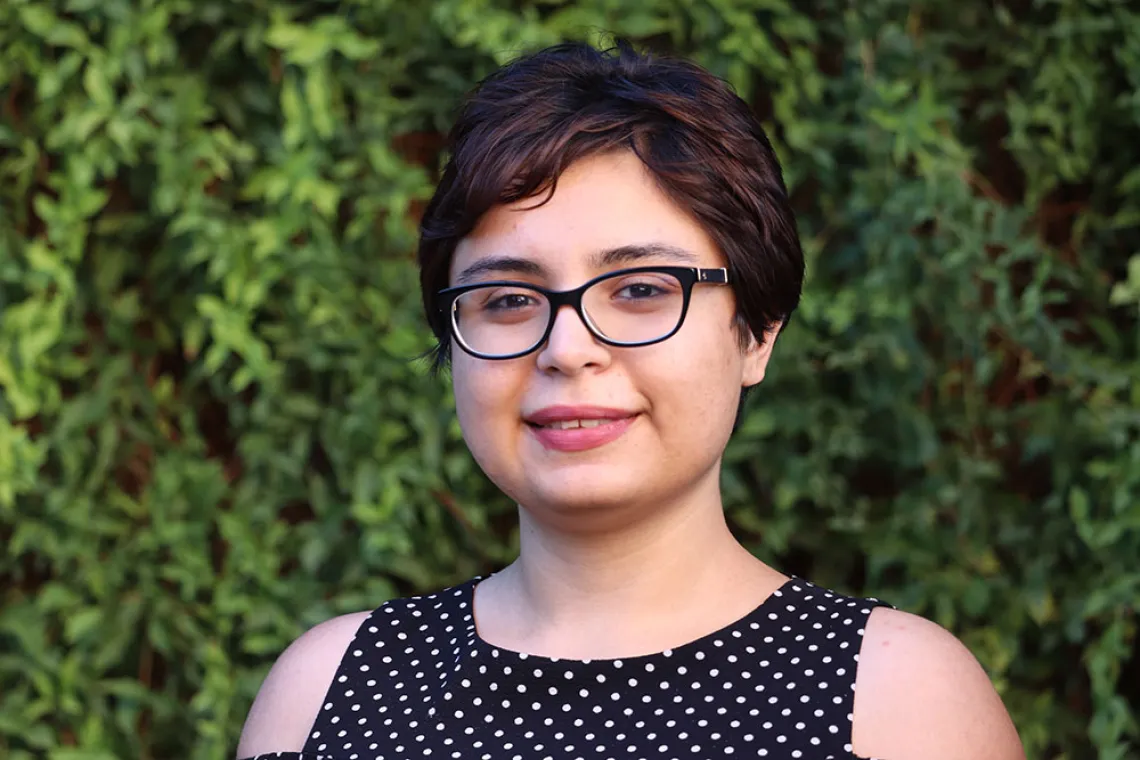Roya AminiTabrizi, Fall '20 Graduate Teaching Associate

Tell us a little about yourself.
Born and raised in Iran, I earned my bachelor’s degree in chemistry from Sharif University of Technology in Tehran, Iran in 2016. Then I moved to the United States in 2017 to get my master’s in analytical chemistry from Southern Illinois University Edwardsville. Now I’m at the University of Arizona pursuing my doctorate.
I have always been an environmental conscious person. Soon after going to college, I joined a student environmental group dedicated to promoting sustainability and educating students of environmental issues. I was an active member for four years and that was when I decided I want to be involved in environmental research.
What do you research and why?
I study carbon cycling in terrestrial and aquatic ecosystems, microbial and viral communities, and their interactions with organic matter with Dr. Malak Tfaily.
I use state of the art analytical techniques such as high-resolution mass spectrometry and "omics" approaches to investigate the biochemical pathways underlying organic matter composition and degradation. Environmental science graduate student in lab.
Our knowledge about the environmental processes governing the earth is so limited and much of the complexity of this dynamic system is still yet to be closely studied. My research aims to understand these processes in molecular level details, unrevealing what governs the biogeochemical cycles.
The unpredictability of the different ecosystems and their completely different responses to changing environmental changes/disturbances is very interesting. You always learn something new with every project and every data analysis.
What do you teach and what do you enjoy the most about it?
This semester, I am taught Microbial Biogeochemistry and Global Change (ENVS 410) and Environmental Microbiology (ENVS 425).
Given the current situation, it was challenging to stay connected with students and make sure they knew I was available to help them.
However, I found the situation changed the communication dynamics between students and instructors. When I did spend one-on-one time with my students (even via Zoom), I got to know them in new ways.
Future plans?
I’m still learning and discovering what I’m interested in. For example, I’ve grown interested over the past year in agricultural studies.
One challenge as a graduate student right now is worrying that you might not get the opportunities that were available to you before the pandemic. And the fear that it might affect the quality of the research that you do.
Words of advice?
It’s ok to spend time figuring out your true passion and change directions if you think your initial plans are not working anymore!
